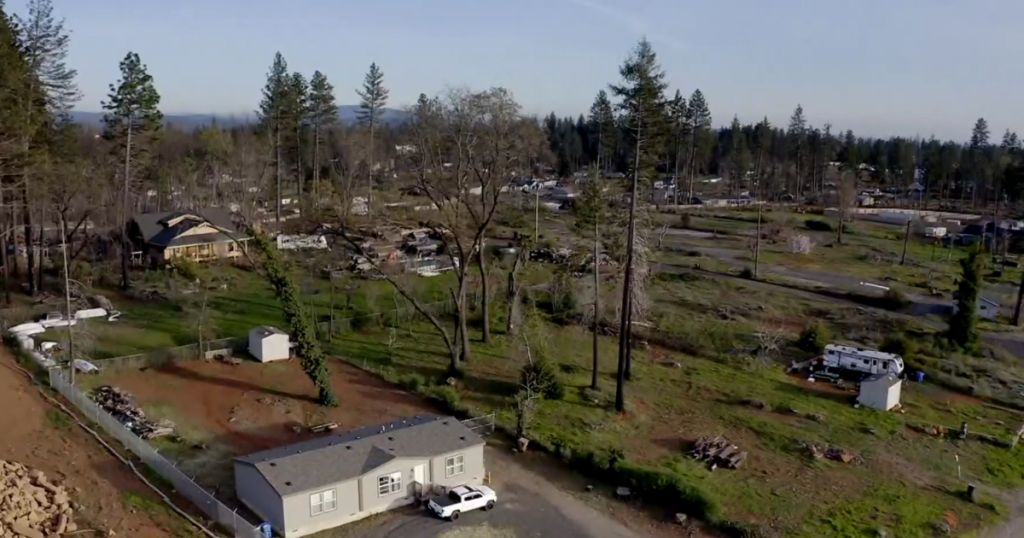Extreme weather has caused devastation in towns across America, with at least five towns in four states being nearly erased from the map within the last five years. Paradise, California, was one such town that was severely impacted by the 2018 Camp Fire, which destroyed nearly 20,000 homes and businesses and claimed the lives of 85 people. Justin Miller, a former resident of Paradise, chose not to return after the disaster and now resides in nearby Oroville.
Research has shown that extreme weather events have forced about 2.5 million Americans from their homes in the last year alone, and 44% of all American homes are at risk due to climate change. Ryan Miller, a Ph.D. candidate studying climate migration and the older brother of Justin, questions why affordable housing often coincides with areas vulnerable to natural disasters. His research at the University of California, Davis, found that many households displaced by the Camp Fire ended up moving to areas also threatened by other disasters like hurricanes and tornadoes.
Despite the challenges faced by Paradise residents, some have chosen to remain in the town and rebuild. Kylie Wrobel and her daughter Ellie are among those who stayed to pick up the pieces and make their home more resilient to future climate-fueled disasters. For them, home now means wherever their family is, even if the town itself has changed dramatically over the past five years. While many former residents have chosen not to return, the Wrobels remain hopeful about the future of Paradise and the growth of a new community built to withstand environmental challenges.
Climate-driven hazards are expected to continue impacting communities across the country, with more potential “Paradises” likely to experience similar devastation. As the effects of climate change become more pronounced, it is becoming increasingly challenging for people to find affordable housing in areas that are not exposed to these risks. The need for comprehensive solutions to address housing affordability and climate-driven disasters is becoming more urgent, as more Americans are forced to confront the realities of living in vulnerable areas.
The aftermath of the Camp Fire has led to significant changes in Paradise, with many families having to rebuild their lives in new locations. For those who have stayed, the meaning of home has evolved to encompass resilience, strength, and community. While the scars of the disaster remain visible in Paradise, residents like the Wrobels are determined to create a new chapter for the town and pave the way for a future that is better equipped to face the challenges of climate change. Despite the difficulties faced in the wake of the disaster, the spirit of resilience and determination shines through in the stories of those who have chosen to stay and rebuild in Paradise.


